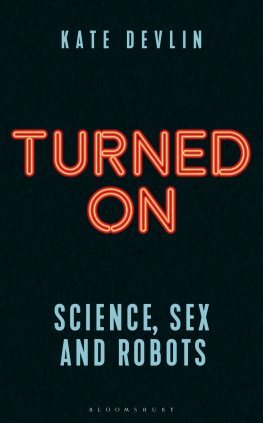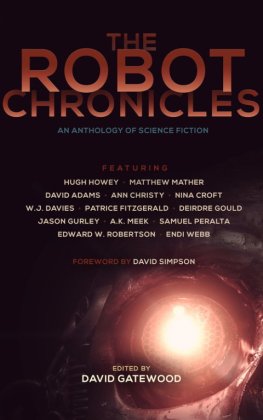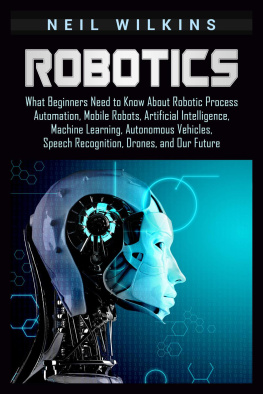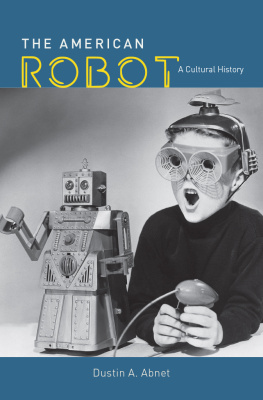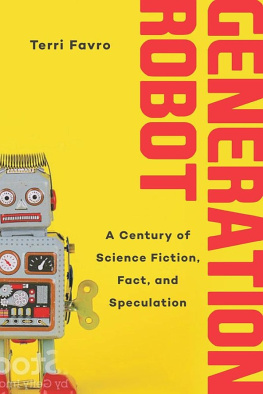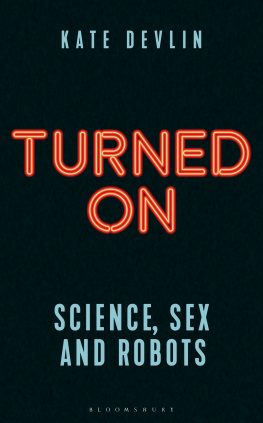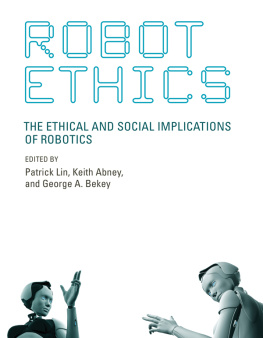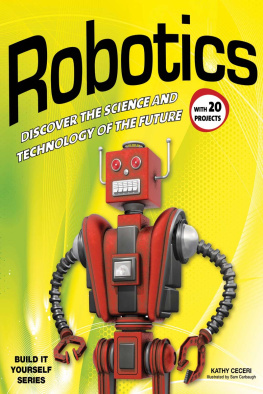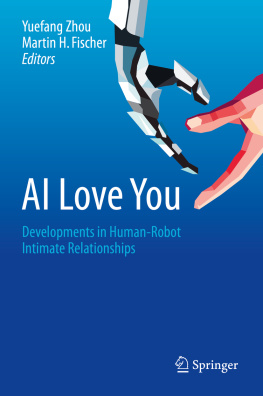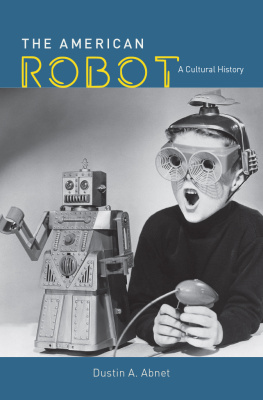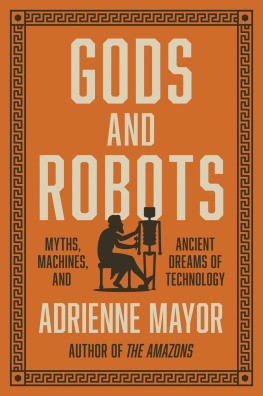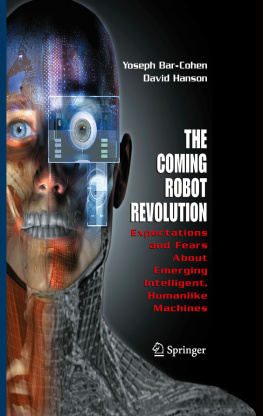
Also available in the Bloomsbury Sigma series:
Spirals in Time by Helen Scales
Chilled by Tom Jackson
A is for Arsenic by Kathryn Harkup
Breaking the Chains of Gravity by Amy Shira Teitel
Suspicious Minds by Rob Brotherton
Herding Hemingways Cats by Kat Arney
Electronic Dreams by Tom Lean
Sorting the Beef from the Bull by Richard Evershed and Nicola Temple
Death on Earth by Jules Howard
The Tyrannosaur Chronicles by David Hone
Soccermatics by David Sumpter
Big Data by Timandra Harkness
Goldilocks and the Water Bears by Louisa Preston
Science and the City by Laurie Winkless
Bring Back the King by Helen Pilcher
Furry Logic by Matin Durrani and Liz Kalaugher
Built on Bones by Brenna Hassett
My European Family by Karin Bojs
4th Rock from the Sun by Nicky Jenner
Patient H69 by Vanessa Potter
Catching Breath by Kathryn Lougheed
PIG/PORK by Pa Spry-Marqus
The Planet Factory by Elizabeth Tasker
Wonders Beyond Numbers by Johnny Ball
Immune by Catherine Carver
I, Mammal by Liam Drew
Reinventing the Wheel by Bronwen and Francis Percival
Making the Monster by Kathryn Harkup
Best Before by Nicola Temple
Catching Stardust by Natalie Starkey
Seeds of Science by Mark Lynas
Outnumbered by David Sumpter
Eye of the Shoal by Helen Scales
Nodding Off by Alice Gregory
The Science of Sin by Jack Lewis
The Edge of Memory by Patrick Nunn
To Caspar, who was literally and literarily part of the journey

Contents
Turns out it takes a village to write a book. As villages go, its one of the friendliest you could hope for. In the past couple of years my research has taken me all over the world and I have spoken to wonderful, generous people who all had interesting things to say. Those I didnt meet in person I met on Twitter. Theres no better way to hone an argument than to condense it into 280 characters. Thank you, tweeps.
This book could not have been written without the incredible knowledge and enthusiasm of the sex-tech community, especially those pioneering pleasure: in particular, Stephanie Alys, Alix Fox, Girl on the Net and Nichi Hodgson. Likewise, the researchers and reporters who have all contributed to the field of technology, sexuality and intimacy: Trudy Barber, Mark Bishop, Christine Campbell, Julie Carpenter, Dan Cooper, Davecat, Yasemin J. Erden, Monica Moreno Figueroa, Richard Huxtable, Sarah Jamie Lewis, David Levy, Kate Lister, Genevieve Liveley, Kyle Machulis, Luke Robert Mason, Matt McMullen and all at Abyss Creations, Cynthia Ann Moya, Rowan Pelling, Kriia Puig, Stephen Rainey, Sergi Santos and Christopher Trout.
Thanks, too, to the doll owners, the forum contributors, the interested parties and the keen reporters for such a wealth of knowledge on the topic. I hope I have represented you correctly and I shoulder the blame if I have not.
My gratitude to the smart, funny experts from the All-Party Parliamentary Group on AI, the equality campaigners of Ada-AI, and the participants in the Leverhulme Centre for the Future of Intelligences AI Narratives project. These are the people who care what happens in a world of machines.
Jim Martin, voice of encouragement and voice of Sigma, has my wholehearted thanks, as does Bloomsburys Anna MacDiarmid. They are so consistently lovely that every time I missed another deadline my guilt levels ratcheted up a notch. If this was their plan, it worked: I finally made it. Thanks, too, to Kealey and Hannah, and to Catherine for pointing out the bits that needed fixing. And gratitude, hugs and applause to the talented and lovely Stuart F. Taylor, whose illustrations captured everything I wanted.
Friends who risked depravity to share ideas, provoke conversation, provide quotations and read early chapters: thank you, especially Sarah Cox, Rebecca Fiebrink, Rodger Kibble, Rebecca Roache, Adam Rutherford and Beth Singler. The puns from my BAP buddies also proved invaluable, as did the visionary ideas from David Mason, most of which are unprintable. Thanks, likewise, to John McGonigle for theatre, sci-fi, and 20-mile-long debates about the Singularity.
A firm nod of gratitude to my colleagues in real life and my comrades online for putting up with my wittering and pointing me in the right directions, and to Kevin and the Hacksmiths team for making Sex Tech Hack a huge success not once, but twice. Also to Goldsmiths, University of London, for complete acceptance and support of this research.
To those who have had my back, to all my friends whose company I enjoy, especially Clare especially, especially Clare and Helena, Becky, Leanne, Lesley, Lahcen, Gen and Rich, Julie and Kofi: youve made life run smoothly amid the chaos and you are fantastic.
My wonderful family and my child have had to put up with lengthy stressed phone calls and cries of not now, Im writing respectively, and so I give my profound thanks. Owing to its content, this book is decidedly not dedicated to them.
To the Single Mothers in Academia who are there round the clock: Im still working on that ideal artificial co-parent. I think were doing fine on our own, though.
A full and effusive thank you to friend and fellow author, blue-haired baby scientist Caspar Addyman, who wrote alongside me, drove alongside me, drank alongside me and laughed alongside me (most of the time). Read his book too.
Last, but definitely not least, my thanks and my love to Mic Wright for this books subtitle and for starting a whole new chapter in my life.
There may be a number of reasons you have picked up this book. Perhaps it was the word sex. Perhaps it was the word robots. Perhaps it was the two words together: a compelling mainstay of science fiction now becoming science fact. Perhaps you judged the book by its cover? Its a nice cover. Or perhaps you bought it as a present for someone to embarrass the hell out of them. Hello, recipient. Perhaps, though, you were curious as to how this could possibly be a subject of any scientific merit whatsoever? Thats a perfectly valid starting point and I hope that in the course of the next ten chapters you will allow me to lay out before you the wonderful stories, ideas, science and state of the art technology that show that there is much, much more to a topic that initially seems so trivial.
The past few years have seen a cascade of headlines about sex robots. Ive read most of them. In fact, its often work of mine and my fellow robosexologists (I made that word up just now) behind those headlines. It was never my intention, back in 2015, to become an expert voice for such a niche and somewhat risqu form of technology. However, to absolutely no ones surprise, if you combine the words sex and robots in any form of media, it turns out that people become very animated very quickly. (This is not to say thats what Im doing here , with this book. If youre looking for salacious soundbites in capital letters youre going to be mostly out of luck.)
But this is not a book thats just about sex. Or robots, for that matter. Its about intimacy and technology, computers and psychology. Its about history and archaeology, love and biology. Its about the future, both near and distant: science-fiction utopias and dystopias, loneliness and companionship, law and ethics, privacy and community. Most of all, its about being human in a world of machines.

